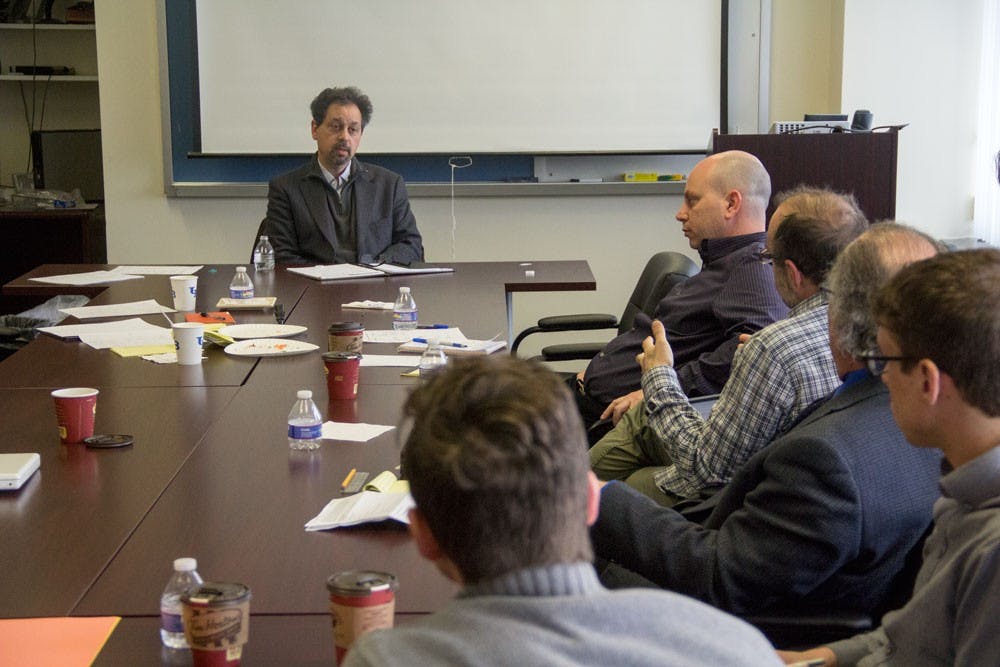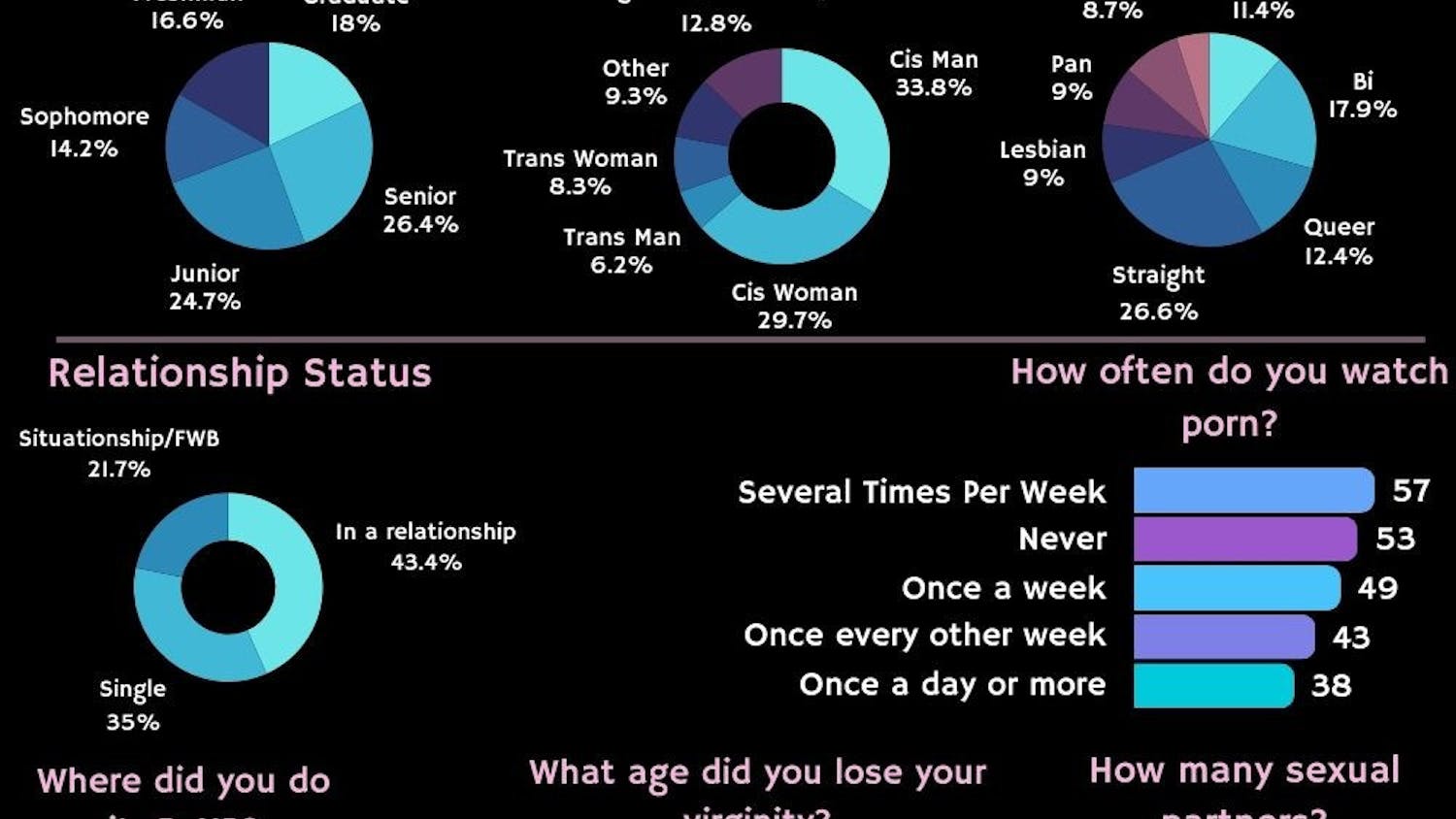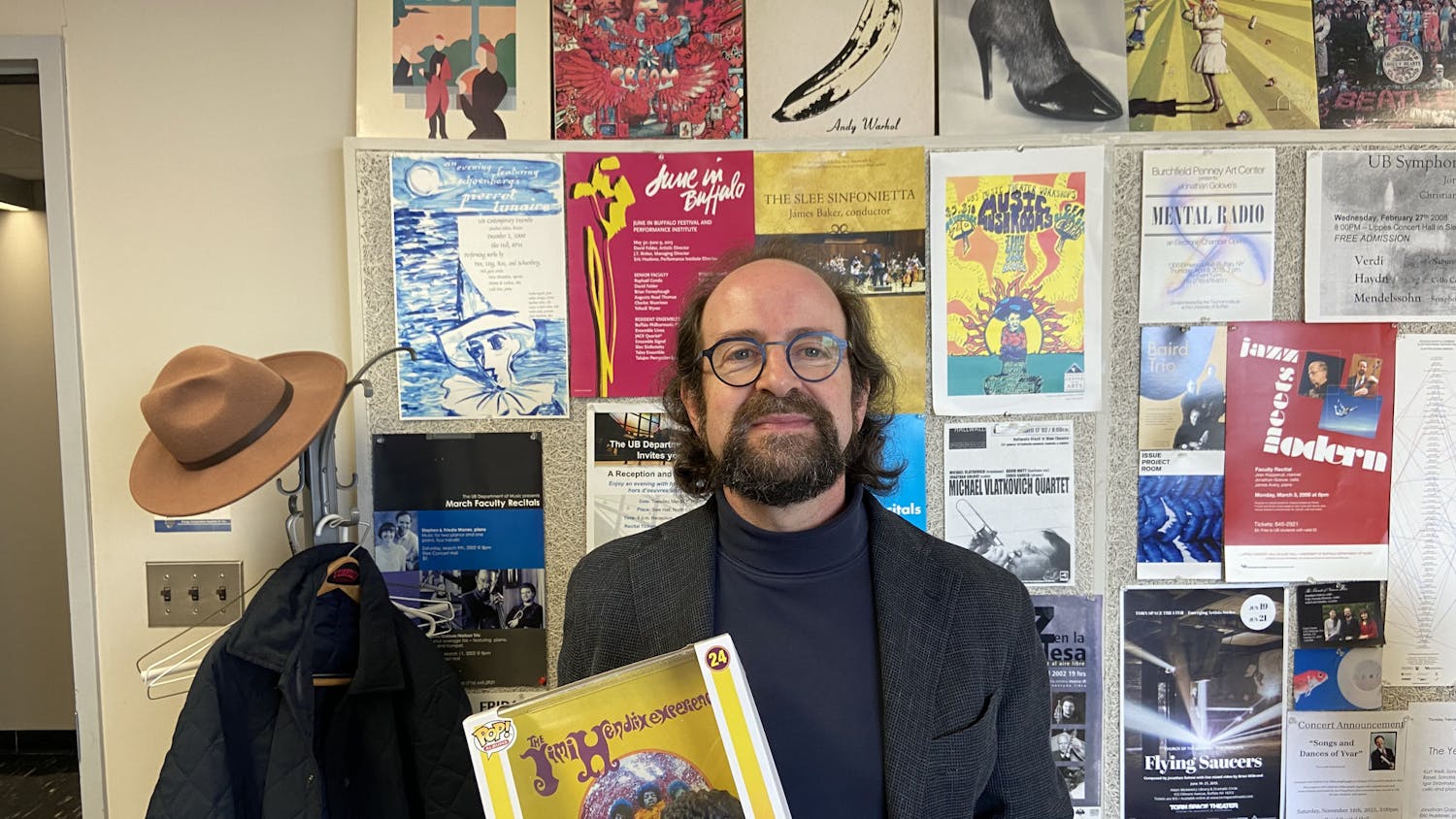With over forty thousand students on campus every year, UB is home to a variety of different cultures, languages and religions. A few students who practice their beliefs on campus didn’t discuss religious books like the Quran, the Torah, or the Bible. Rather, they discussed the work of a novelist.
On Monday, the Department of Jewish Thought and UB Humanities Institute held a symposium entitled The Law in the Work of Franz Kafka in Clemens Hall from 9 a.m. to 5 p.m. Kafka was a German novelist who lived from the late 1800’s to the early 1900’s.
Noam Pines, a professor in Jewish thought, organized the event.
“The one topic that, in a way, covers what this entire conference is about is the topic of the law,” Pines said.
Pines doesn’t believe the event was biased towards one specific viewpoint or religion.
“I brought together scholars from different kinds of disciplines - from history, philosophy, literature and Jewish thought - to offer different perspectives on this law,” Pines said. “The law in Kafka is relevant to all these different disciplines.”
The event took place at UB, but not everyone in attendance was from the Buffalo area. The scholars that attended came from a variety of different areas including Yale University, SUNY Binghamton and Lehigh University.
Whether due to a lack of interest or just a lack of students not knowing that the event was even taking place, there weren’t many students in attendance at the symposium. Like every event, the students that did attend had a mix of different reactions.
Josh Dawson, a graduate student, said that he enjoyed the event and stayed the entire eight-hour length of the symposium. He was there because he is interested in German writers like Kafka and thought the symposium would be interesting.
According to Dawson, the event covered multiple topics in the eight hours that it lasted. Multiple speakers read their work on their interpretation of the law in Kafka’s novels. After each speaker was finished reading their work, the room discussed what they thought of the ideas presented in it. One of the topics presented and discussed at the symposium was that of borders and walls in Kafka’s work.
“Both physical [and mental] borders were discussed,” Dawson said. “So the example that was given was the wall of Westbank as well as the wall between Mexico and the U.S., but they were discussed as example of . . . I guess allegorical walls in Kafka’s work.”
Dawson said that he enjoyed the event and he wasn’t the only student that felt this way.
Sunjae Jan, a grad student, agreed with Dawson.
“Very good detailed explanation on Kafka’s work and its reception in criticism,” Jan said. “I’m not specializing in this, but I think it was very good. I showed up for Kafka and [it] didn’t disappoint.”
Other students weren’t as enthusiastic about the event as Dawson and Jan were. One student said he couldn’t comment on what he thought about the event because he couldn’t really understand what was being discussed.
Pines admitted that Kafka can be difficult to understand at times.
“If you’ve read the Trial, there is this form of law we don’t understand,” he said. The Trial is one of the more popular novels written by Kafka in which the main character is arrested and never told what crime he committed.
Pines believes that the difficulty of Kafka’s work doesn’t apply to just this novel.
“[The topic of law in Kafka] is a very convoluted thing,” Pines said. “Essentially, there is no answer [to what the law means in Kafka’s work] because nobody has even dedicated much work to the law in Kafka, even though a lot has been written about him.”
John Jacobs is the assistant features editor and can be reached at john.jacobs@ubspectrum.com





